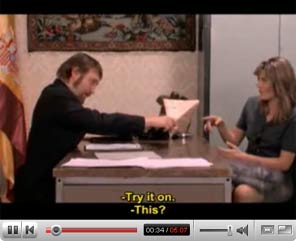 Here’s an interesting cite dealing with how to argue constructively. These words are attributed to the mathematical psychologist Anatol Rapoport and I discovered them thanks to the brilliant Bryan O’Sullivan blog, of Mercurial fame:
Here’s an interesting cite dealing with how to argue constructively. These words are attributed to the mathematical psychologist Anatol Rapoport and I discovered them thanks to the brilliant Bryan O’Sullivan blog, of Mercurial fame:
Serious argument depends on mutual respect, and this is often hard to engender when disagreements turn vehement.
The social psychologist and game theorist Anatol Rapoport (creator of the winning Tit-for-Tat strategy in Robert Axelrod’s legendary prisoner’s dilemma tournament) once promulgated a list of rules for how to write a successful critical commentary on an opponent’s work.
First, he said, you must attempt to re-express your opponent’s position so clearly, vividly and fairly that your opponent says “Thanks, I wish I’d thought of putting it that way.†Then, you should list any points of agreement (especially if they are not matters of general or widespread agreement), and third, you should mention anything you have learned from your opponent. Only then are you permitted to say so much as a word of rebuttal or criticism. I have found this a salutary discipline to follow–or, since it is challenging, to attempt to follow. When it succeeds, the results are gratifying: your opponent is in a mood to be enlightened and eagerly attentive.
It looks like a good advice to keep oneself honest and being able to learn as much as you can from others’ points of view.
Update: two interesting blog posts on the topic are how to win friends and influence people, by D.Berkholz and how to disagree, by P.Graham

 Here’s an interesting cite dealing with how to argue constructively. These words are attributed to the mathematical psychologist
Here’s an interesting cite dealing with how to argue constructively. These words are attributed to the mathematical psychologist